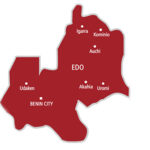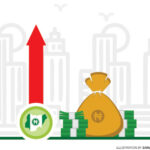What is your impression of the GGW?
The Great Green Wall Programme is a laudable achievement of the African Union towards fighting desertification which poses a great threat to the frontline countries.
How will this project impact northern Nigeria?
In Nigeria the 11 frontline states fall under the northern region and most of their economic activities border on agriculture. Desert encroachment greatly affects soil quality and by extension grazing activities, fishing etc. The coming of the GGW is a welcome development especially for the northern states and if the menace of desertification is checked then it will go a long way in improving the status of northerners and their socio economic activities.
What is the best funding mechanism for the project?
The best funding mechanism for this programme would be a joint Federal, State and Local government account. This will enable a strong partnership and ownership of the programme which is not the case today. When all the ties of government articulate a funding mechanism in support of the project, the implementation will become better.
How can the GGW programme engage more with the states?
It is expected that the State Governments should be the key drivers in the implementation stage serving as a pivot to sustain the programme with federal and local government collaboration but more of this is not seen yet, so it is hopeful that the GGW agency will consider how best to engage the states.
The local government seems excluded from the GGW?
The initial plan was for states and local governments to jointly participate but what we see today is that the local governments are not yet fully integrated into the whole picture. This could be further enhanced through strong and effective advocacy and clearly delineated responsibilities. If this is done I am sure that the local governments will participate more actively.
What roles can host communities play in the implementation of the GGW?
The host communities are the sole beneficiaries in turns of the benefits that will arise from improved soil and climate conditions to the socio economic benefits of their agricultural activities and the livelihood programs that they enjoy as part of the programme. Already each host community is provided with water supply, orchards and economic tree seedlings to sustain their livelihoods and improve their capacity towards sustaining the shelterbelt.
In specific terms, are there any roles for women and children under GGW?
Women and children being part of beneficiaries of the GGW as part of the host communities could be able to play their role through actively participating in raising seedlings for planting and nurturing them to full-fledged trees. This could be done through community mobilization and capacity building towards achieving full ownership of the programme.
How has Jigawa fared in the implementation of the GGW project?
In Jigawa state we have done our part, the trees were planted in two zones Birniwa and Sule Tankarkar local Governments and we recorded 50 per cent survival in the first round and the following year the yield was even better. The federal Ministry of Environment wanted a state a flag off in the state after that of Kebbi state but it was late and as a result of election.
When are we going to start seeing the Walls?
Well, as soon as every local and state government start to work together with the Federal Government and Nigeria works in synchrony with the fellow African countries so that the project proceeds as one holistic program.
I advise the National Agency for Great Green Wall to articulate a clear strategy for the implementation of the programme in Nigeria as this will enable us keep pace with other countries implementing the programme. If it means to trace its steps and commence advocacy and social mobilization all over again it’s well worth it.
 Join Daily Trust WhatsApp Community For Quick Access To News and Happenings Around You.
Join Daily Trust WhatsApp Community For Quick Access To News and Happenings Around You.

